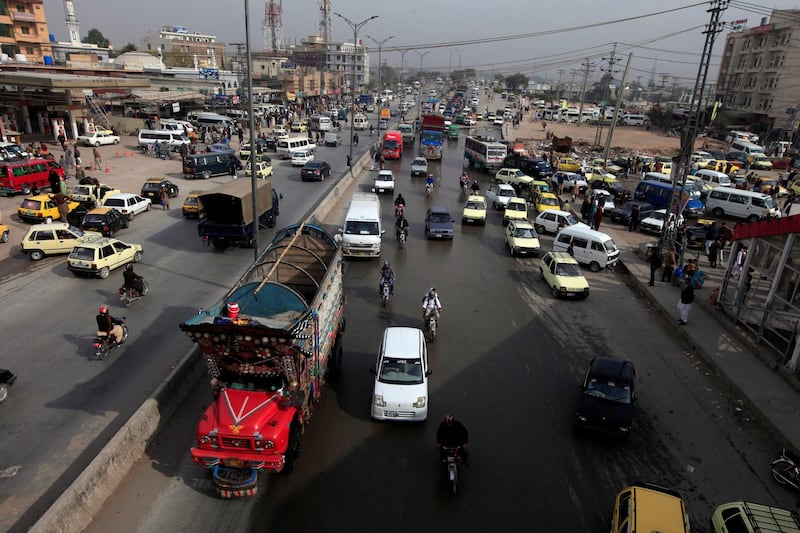Pakistan’s central bank devalued the rupee for the fourth time since December seeking to slow depletion of its foreign-exchange reserves before a national election in nine days.
The currency, whose rate is set by the central bank, dropped as low as 5.3 per cent to 128 a dollar at the close, according to State Bank of Pakistan data compiled on Bloomberg. The rupee is the worst performer in Asia this year, according to a basket of 13 currencies compiled by Bloomberg. A spokesman for the central bank declined to comment although the regulator has previously said the rupee’s level is determined by market forces.
The finances of the $305 billion economy are dwindling and there is growing speculation that Pakistan will have to seek an International Monetary Fund bailout as its current-account deficit widens and dollar reserves plunge to $9.5bn, the lowest in more than three and a half years. The sell-offs in emerging market currencies and stocks are likely to continue in the second half of 2018 as the US raises interest rates and the world braces for a trade war, a survey of 20 investors, traders and strategists by Bloomberg shows.
The Pakistani rupee has dropped 13.8 per cent this year followed by the Indian rupee falling 6.9 per cent. It still pales next to the Argentine peso’s 32 per cent rout this year that approved a $50bn loan from the IMF, the biggest in the fund’s history, and the Turkish lira’s 22 per cent retreat.
_______________
Read more:
Afghan money traders see opportunity as Iran sanctions loom
_______________
Pakistan’s benchmark KSE100 Index fell 1.5 per cent as the currency devaluation “has reignited a concern over the macro situation of Pakistan”, said Faisal Bilwani, head of international sales at Alfalah Securities Pvt.
“You are not able to stop the foreign exchange bleeding right now,” said Mohammed Ali Hussain, senior analyst at in Dubai at Frontier Investment Management Partners that handles $2bn in assets. “Until and unless you can bolster your reserves, the quick and dirty fix is a devaluation.”
Pakistan’s economic growth may slow for the first time in six years to a rate of 5.2 per cent this year with an expected scaling down of expenses, according to a Bloomberg survey. The nation’s economy in the last fiscal year grew at the fastest pace in more than a decade with China financing of about $60bn in infrastructure projects.
The devaluation follows a rate increase by 100 basis points on Saturday, the most since 2008 as the central bank attempts to suppress demand. The economy is “overheating”, State Bank of Pakistan Governor Tariq Bajwa said. There needs to be a balance “between stabilisation and growth”.
Pakistan’s real reserves have dropped below level it approached IMF the last two times for a bailout, according to Bilal Khan, a senior economist at Standard Chartered Bank. With elections scheduled for July 25, the next government will need to approach the IMF as a “matter of urgency”, Mr said Khan.
“It’s a smart move so they can get some extra space’’ before entering negotiations with the IMF, said Mattias Martinsson, a money manager at Stockholm-based Tundra Fonder. Pakistan has been getting “a billion or two billion dollars from China from time-to-time, but what they need is some kind of bazooka to show that they have spare capacity for two years’’.






